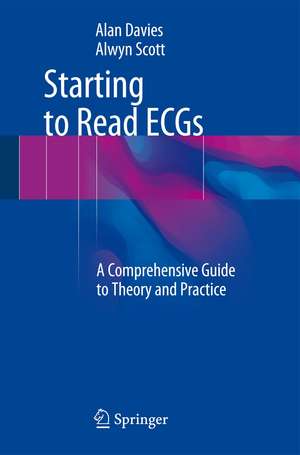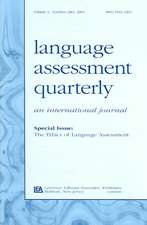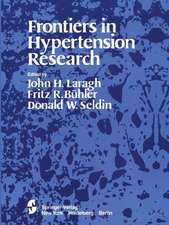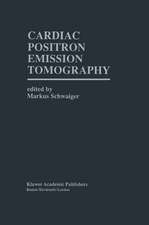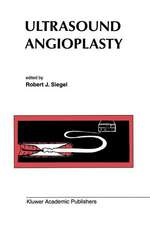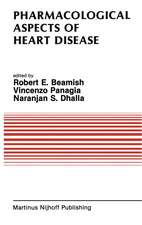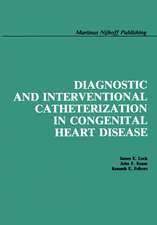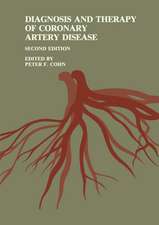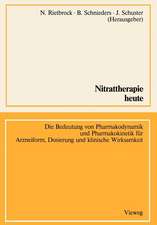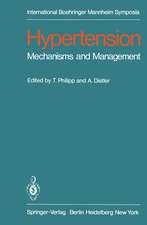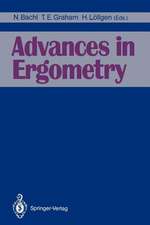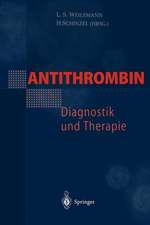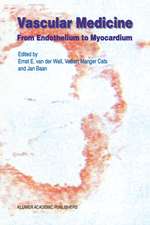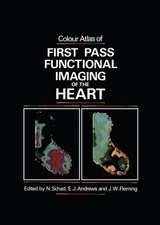Starting to Read ECGs: A Comprehensive Guide to Theory and Practice
Autor Alan Davies, Alwyn Scotten Limba Engleză Paperback – 5 dec 2014
| Toate formatele și edițiile | Preț | Express |
|---|---|---|
| Paperback (2) | 365.10 lei 6-8 săpt. | |
| SPRINGER LONDON – 6 dec 2013 | 365.25 lei 3-5 săpt. | |
| SPRINGER LONDON – 5 dec 2014 | 365.10 lei 6-8 săpt. |
Preț: 365.10 lei
Preț vechi: 384.31 lei
-5% Nou
Puncte Express: 548
Preț estimativ în valută:
69.86€ • 72.94$ • 57.82£
69.86€ • 72.94$ • 57.82£
Carte tipărită la comandă
Livrare economică 04-18 aprilie
Preluare comenzi: 021 569.72.76
Specificații
ISBN-13: 9781447149644
ISBN-10: 1447149645
Pagini: 207
Ilustrații: XVIII, 207 p. 238 illus., 119 illus. in color.
Dimensiuni: 155 x 235 x 10 mm
Greutate: 0.33 kg
Ediția:2015
Editura: SPRINGER LONDON
Colecția Springer
Locul publicării:London, United Kingdom
ISBN-10: 1447149645
Pagini: 207
Ilustrații: XVIII, 207 p. 238 illus., 119 illus. in color.
Dimensiuni: 155 x 235 x 10 mm
Greutate: 0.33 kg
Ediția:2015
Editura: SPRINGER LONDON
Colecția Springer
Locul publicării:London, United Kingdom
Public țintă
Professional/practitionerCuprins
Chapter 1 Anatomy and physiology.- Advanced anatomy and physiology.- Cellular physiology (action potential of pacemaker/non-pacemaker cells).- Wiggers diagram.- Revision of waveform.- Chapter 2 Revision of recording ECG and basic interpretation skills.- Advanced lead placement (posterior ECGs / right sided ECGs).- Explanation of leads / electrical flow.- Review of normal values and paper timings.- Different methods of rate calculation.- Chapter 3 Calculating cardiac axis.- What it is.- Why it's useful.- The quick look method.- The Hexaxial method.- Making it more accurate.- The vector method.- Worked examples.- Chapter 4 Brady-arrhythmias.- Background.- Genetic factors.- treatment options.- Chapter 5 Tachy-arrhythmias.- Background.- Genetic factors.- treatment options.- Chapter 6 conditions.- Conduction blocks.- PE, electrolye.- Brugada (type I - III).- Cardiomyopathy.- Hypertrophy.- Chapter 7 Implantable devices and the ECG.- PPM.- AICDs.- Various implanted monitors (i.e. Reveal).- Considerations.- ECG appearance.- Chapter 8 Drugs and the ECG.- Tricyclics.- Long QT causing drugs.- Arrythmogenic drugs.- Cardiac specific drugs.- Chapter 9 Paediatric ECGs.- Normal paediatric ECG.- Childhood cardiac abnormalities appearance on the ECG (i.e. congenital issues like holes in hearts, accessory pathways etc).- Chapter 10 ACS and re-profusion arrhythmia's.- Bloods (enzymes).- physiology and pathology of arteriosclerosis.- Treatment options.- MI's.- Posterior MIs.- Vasospasm.- Ideoventricular rhythms.- Treatment options (PPCI, CABG, thrombolytic therapy).
Textul de pe ultima copertă
This book follows Starting to Read ECGs: The Basics by the same authorship and provides the beginner in electrocardiogram (ECG) interpretation with a concise, practical and systematic guide to interpreting ECGs. The authors have included an introduction to the pediatric ECG and genetic cardiac conditions in attempt to deepen readers awareness of some of the broader clinical issues. Starting to Read ECGs: A Comprehensive Guide to Theory and Practice expands on some of the topics introduced in the first book, but offers a deeper perspective with more detailed background information and a variety of practical interpretation methods. It can be read as a standalone book for those who already possess some basic ECG knowledge or for those who have read the first book in the series and wish to consolidate and expand on what they have already read.
The book uses numerous diagrams, tables and practical examples to reinforce learning and summarize information succinctly, and will be an essential resource for medical students, junior doctors, and other health care professionals involved in the recording and interpretation of ECGs who wish to build their knowledge and confidence.
The book uses numerous diagrams, tables and practical examples to reinforce learning and summarize information succinctly, and will be an essential resource for medical students, junior doctors, and other health care professionals involved in the recording and interpretation of ECGs who wish to build their knowledge and confidence.
Caracteristici
An accessible text for beginners Concise text and a multitude of full colour diagrams, illustrations and medical images used to explain complex ideas simply Each chapter contains a mind map for revision and to aid dyslexic learners, practice questions and a few practice ECGs to consolidate the readers knowledge? Includes sections on interpreting pediatric ECGs and the effect of implantable cardiac devices and drugs on the ECG
Notă biografică
Alan Davies
Alan Davies graduated Birmingham City University with a 1st class honours degree; he also won a 1st place prize for adult nursing student in the inaugural Health Care Awards. At the time of writing this book Alan Davies was working as a nurse in the cardiac catheterisation labs at the Royal Devon and Exeter Hospital. Alan has experience dealing with routine and emergency angiograms including primary PCI. Alan has also assisted in pacemaker/AICD insertion, Transoesopheageal Echo (TOE), cardioversion and electrophysiological studies. He has also authored three articles, two concerning ECG’s and one about permanent pacemakers, which were published in the British Journal of Nursing and the British Journal of Cardiac Nursing respectively. Alan also has a post graduate degree module in ECGs and arrhythmias.
Alwyn Scott
Alwyn Scott graduated from Birmingham University and has worked in the NHS since 1995. He is currently employed as Senior Staff Nurse for the Cardiology High Dependency Department at Papworth Hospital in Cambridgeshire. His role is predominantly that of working with patients who are in the acute stages of having Heart Attacks both pre and post Primary PCI. Alwyn is also heavily involved in staff education. Alongside specialist knowledge in acute cardiac nursing and ECG interpretation, Alwyn also has a vast experience in emergency care, working in Accident and Emergency departments and also front line for the ambulance service responding to 999 calls.
Alan Davies graduated Birmingham City University with a 1st class honours degree; he also won a 1st place prize for adult nursing student in the inaugural Health Care Awards. At the time of writing this book Alan Davies was working as a nurse in the cardiac catheterisation labs at the Royal Devon and Exeter Hospital. Alan has experience dealing with routine and emergency angiograms including primary PCI. Alan has also assisted in pacemaker/AICD insertion, Transoesopheageal Echo (TOE), cardioversion and electrophysiological studies. He has also authored three articles, two concerning ECG’s and one about permanent pacemakers, which were published in the British Journal of Nursing and the British Journal of Cardiac Nursing respectively. Alan also has a post graduate degree module in ECGs and arrhythmias.
Alwyn Scott
Alwyn Scott graduated from Birmingham University and has worked in the NHS since 1995. He is currently employed as Senior Staff Nurse for the Cardiology High Dependency Department at Papworth Hospital in Cambridgeshire. His role is predominantly that of working with patients who are in the acute stages of having Heart Attacks both pre and post Primary PCI. Alwyn is also heavily involved in staff education. Alongside specialist knowledge in acute cardiac nursing and ECG interpretation, Alwyn also has a vast experience in emergency care, working in Accident and Emergency departments and also front line for the ambulance service responding to 999 calls.
